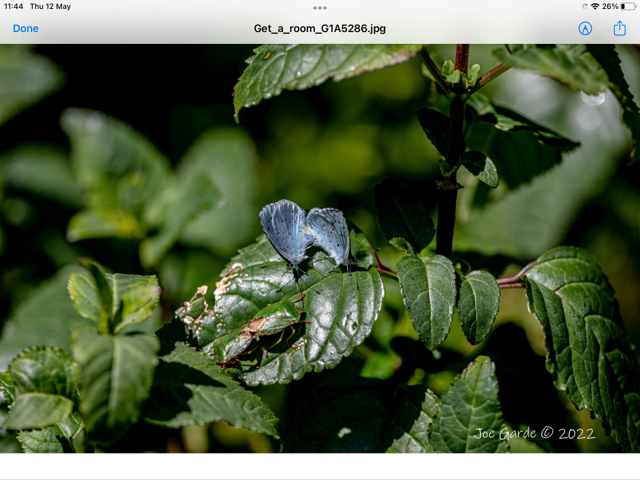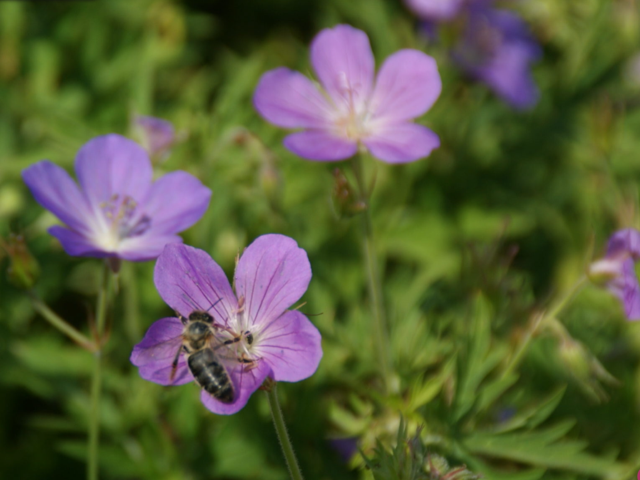June in our Gardens by Philippa Thomas
‘HELLO’, SPECIAL JUNE AND ITS SOME TIME SINCE WE SAW YOU LAST. WE ARE READY TO GREET YOU WITH OPEN ARMS. June is our magical month especially for Gardeners, so let’s take time out to really enjoy it. Try to remember to simply wander around, let’s absorb our garden around us, soak it all in, feel the texture of the odd plant and let’s be thankful. We have our longest day of the year, Summer Solstice which falls on June 22nd, meaning that from this point forward, our days will be already getting shorter. Presently, we have extra sunlight which makes everything flourish. Remember, extra light and warmth boosts all plant growth especially weeds that love to self-seed right now. For the dedicated Gardener however, maintenance is a top priority in June….. staying on top of our garden tasks can sometimes take up most of our day. Generally, the very best time for pruning shrubs is after flowering, regardless of what the magazines and books say, it really depends on whatever shrub has finished flowering. Pruning helps to stop the shrub from getting too big for its space and to shape it. If we’ve been admiring a late spring shrub but at the same time, thinking it’s getting too big, now is the time to attack. Shrubs such as Deutzia, Forsythia, Philadelphus, (mock orange,) Spirea, Ribes Sanguineum, (the flowering currant,) respond so well to such.
June can bring the driest of weather in Ireland as our summer literally moves into full swing. We have such a big world out there to inspire us with our gardens. We can choose to have full floriferous fabulous borders with some rising stars of tall elegant favourites that sing out from the back and add vertical interest, likewise we can choose to grow short, medium and tall varieties together in the same border for maximum impact and wow factor or lets go funky, garish and wild…. We can even plant instant colour. All is wonderful. So, lets really enjoy ourselves in our gardens, we can effortlessly lie back in a comfy recliner, maybe host a BBQ, an afternoon tea party or a candle lit supper outside, perhaps close to some scented stock or phlox, jasmine, perfumed roses, evening primrose, (oenothera,) or honeysuckle… Night scented plants begin releasing their sweet fragrances as dusk falls. They have evolved to attract nocturnal pollinators, such as moths and are often pale in colour making them more visible in moonlight.

Shield Bug with Holly Blue butterflies
Local Hanky Panky . Can you spot Shield Bug with Holly Blue butterflies? The Holly Blue population can be parasitised by the Ichnuemon Wasp.
The advantage of sowing annuals is that we can choose from a wide range of seed and grow plants that we rarely see in a garden centre. The specialist seed catalogues have a fantastic range of seeds and isn’t it so exciting to grow something unusual and maybe then, share with a neighbour or charity plant table. We could allocate a specific patch / spot, in our garden, let it be our blank canvas, then we can create our own little miracles, literally let them emerge like ‘hugs’ coming up through our layers of soil to greet us.
Then, let’s beware of planting out our summer bedding, better not to rush as our bedding will sulk if it is too cold. Most plants that we buy have been grown in perfect conditions, warm, no wind or cold and then, get likewise, the perfect amount of water. Bringing these home and putting them outside in a chilly wind will give plants quite a shock and will set back growing, maybe harden off for a few days, if our first few days of June are unsettled. Toxic slug pellets containing metaldehyde have now been banned for use in horticulture within the UK. This is such wonderful news for wildlife, our environment and our gardens. Now, slug and snail control pellets, work fast, they are made from naturally occurring iron phosphate and are extra resistant to rain, so if a bird, pet, or hedgehog eats one, they will not be harmed. Surely, we don’t have to wait for our government to tell us to do the right thing….?
A MINI WILD FLOWER GARDEN
It’s so advantageous, to make sure the seed mix we choose is the right one relevant to our soil type. If we are combining flowers with grasses, we might need to reduce the strength of the grass. It’s key to introduce yellow rattle. This is a hemiparasite, it fixes its roots onto the root system of adjacent grass and extracts the water and minerals that it needs, this weakens the grass allowing more delicate and often more colourful and interesting flowers to grow.
WHY NOT CONSIDER A VEGPOD?
To grow our own five a day, maybe we can consider a veg pod self contained growing unit for our gardens. Such a veg pod makes gardening really simple and we can grow organically. This raised garden bed is ideal for growing our favourite salads, herbs, fruits and veggies. It is a waist high unit and comes with a cover which protects our edibles from caterpillars and general garden pests.
BREAKING NEWS
Garden Centre Sales Figures For Last Year.
The Garden Centre Association’s latest sales figures have revealed just how much gardening rose in popularity during the pandemic, with garden centres sales rising by 30.47% between 2020 and 2021. The categories that saw the biggest rise in sales were furniture and barbecues, outdoor plants and gifts.

Geranium ‘Purple Rain,’
Geranium ‘Purple Rain,' one of the tallest varieties, it blooms for months on end, really worth keeping an eye out for.
Tall, Hardy Geranium, ‘Purple Rain’. The most floriferous variety at all trial sites was Purple Rain. It bloomed for months on end and was also one of the tallest varieties. It needs staking to stop it from flopping over, but if we do this, it forms an attractive dome of flowers. It is really worth keeping an eye out for it…
Rare Pansy: A dwarf pansy has been re- established in the Isles of Scilly. The tiny flower, not found elsewhere in the UK, disappeared after the reduction of grazing. Seeds that have lain dormant for 16 years have germinated after bracken, scrub and coarse grasses were removed.
Viburnum Beetle Grubs: Viburnums are tough shrubs that flower each spring and early summer without bother but the yellowish viburnum beetle grub can leave their foliage like lace…. They’ll be active
Sadly, TWO NEW SPECIES OF KILLER WORMS COULD BE HEADED FOR UK GARDENS AND MAYBE OURS TOO, SCIENTISTS WARN. Hammerhead Flatworms can cause serious damage to gardens. The tiny worm creatures pose a risk to biodiversity in gardens and farms by feasting on native earthworms which help keep our soil fertile.
MIGHT DO, MAYBE JUNE JOBS
1. Maybe, create our own summer haven literally, buzzing with wildlife. Angelica Archangelica, Monarda Cambridge Scarlet, Achilleas, Heleniums, Agastache Black Adder, Euphorbia Red Wing and Hemerocallis Bonanza are favourites for wildlife.
2. Maybe, start sowing the orientals, mustards, mibuna, mizuna and maybe, find a more sheltered spot for lettuces, we can fill in the gaps with fast rocket and radishes or what about starting a bed of kale….
3. Scented lavender helps us sleep better, simply place lavender sprigs into the sleeve of our pillow and drift away for a restful sleep. Remember, lavender loves to grow in a sunny location in free-draining soil and full sun.
4. If, deciding to buy some bamboos, generally the clump forming bamboos such as those with black or golden yellow stems don’t get out of hand, avoid the spreaders that can take over our gardens.
5. Wise to repot some house plants now.
6. All narcissi varieties have finished flowering now and may be looking a little messy. Deadheading and leaving the foliage for six months allows the bulbs to regenerate their energy on creating stronger and healthier flowers for next year rather than seed production.
7. Top Dress: If there is bare soil and room in our pots, lets top dress our containers. This means, remove the top few centimetres of compost and replace with fresh, newly dated compost with added fertiliser.
HOW SHOULD I TREAT CUT FLOWER STEMS FOR FLOWER ARRANGING…., bash, burn or sear…? Anything that looks floppy should have its stem ends seared in boiling water for 30 seconds. Give woody stems a bit longer, Lilac needs a whole minute. With short-stemmed plants, take care to keep the flower heads away from the steam and generally, we get better results with woody shrubs by searing them than by hammering their stem ends…., really it has a miraculous effect on vase life.
“The Most Noteworthy Thing About Gardeners Is That They Are Always Optimistic, Always Enterprising, And Never Satisfied. They Always Look Forward To Doing Better Than They Have Ever Done Before”.
Vita Sackville-West.
